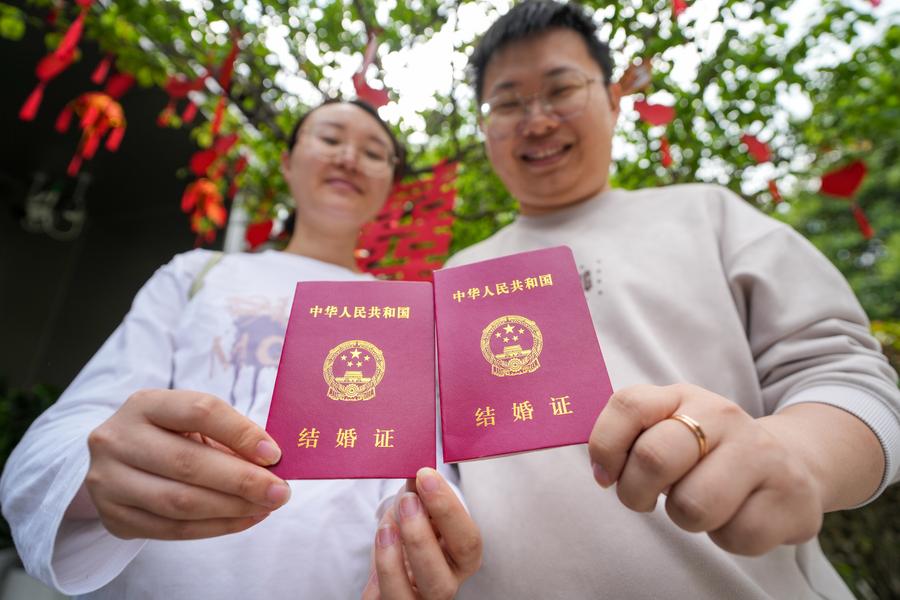Provinces propose more leave to boost marriages


A growing number of provinces in China have extended marriage leave to up to 30 days or are considering doing so as part of efforts to build a fertility-friendly society amid declining birth rates.
In May, health authorities in Sichuan province proposed increasing the duration of marriage leave from five to 20 days for all newlyweds, with an additional five days granted to couples who voluntarily undergo premarital medical examinations.
The proposal was included in a draft amendment to a local population and family planning regulation, which closed for public feedback on June 30. Authorities said in July that the final version would be published by the end of the year.
For decades, the standard duration for marriage leave across China was three days. Some regions previously offered extended leave to those marrying at what was then considered a relatively older age, defined as men over 25 and women over 23.
Amid a growing trend of completely avoiding or delaying marriages among younger generations, along with decreasing birth rates, many regions have eliminated incentives for late marriage and instead extended marriage leave for all couples to encourage marriage and childbirth.
The longest marriage leave, lasting 30 days, is currently implemented in Shanxi province in North China and in Gansu province in the northwest.
Authorities in Shandong province announced in January that they would provide up to 18 days of marriage leave. Since June, residents in Hubei province have been entitled to 15 days of marriage leave, which can be taken all at once or split up over time.
A few provinces, including Guangdong, Hunan and the Guangxi Zhuang autonomous region have maintained the three-day marriage leave policy.
Jiang Quanbao, a professor at the School of Labor Economics at the Capital University of Economics and Business, said the three-day leave is insufficient given China's high population mobility.
He said extending marriage leave can make it more convenient for young people to travel, stimulate consumption, improve wellbeing and even boost willingness to have children.
Wei Shaoling, a marriage and family lawyer at Beijing Jingsh Law Firm, told Xinhua News Agency that marriage leave policies are designed based on factors such as regional demographic structure, marriage and fertility trends, and the capacity of employers.
She suggested that companies adopt flexible working arrangements, allowing employees to adjust their schedules around marriage leave to reduce the impact of their absence.
Official data shows that more than 6.1 million couples registered for marriage in 2024, a decrease of 20.5 percent compared with 2023.
wangxiaoyu@chinadaily.com.cn
- Provinces propose more leave to boost marriages
- Shandong university launches major in infant health
- Unlocking sports fever could secure economic goals
- Foreign youth honor Chinese 'father of hybrid rice' during a journey to Fujian
- Harbin wax carver overcomes polio to inspire other disabled people
- Interest rates subsidized to boost spending





































